Is Love Blind to Animal Abuse? Why Camel Rides Are a Red Flag
Glass blowing? Bungee jumping? Solid date ideas! But camel rides give us the “ick.”
In a recent episode of Netflix’s Love Is Blind, Ashley and Tyler rode camels during their getaway to Mexico. But just like Ashley didn’t really know Tyler, many folks don’t realize how camels suffer when they’re used as tourist traps.
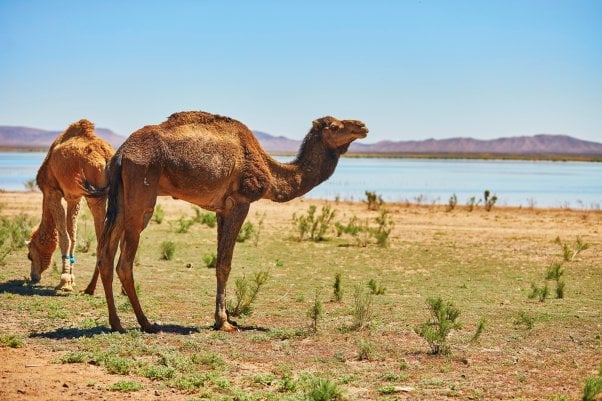
Camels are extremely friendly and typically live in groups called caravans. They express their feelings with groans, moans, and roars. And despite their calm, serious demeanor, they can be playful, especially when young.
But camels exploited for rides don’t get to do anything natural and important to them. When you see camels on reality TV, the reality is they’re often forced to comply through violence and fear. So in honor of Love Is Blind Season 7, Episode 7, we’ve compiled a list of seven reasons why Ashley and Tyler shouldn’t turn a blind eye to camels’ suffering—and neither should you.
1. Camels Are Bred Without Consent
Just like the couples in Love Is Blind, camels choose their own partner in nature. But when humans exploit camels, breeders often use electroejaculation to collect semen. This undignified, painful procedure involves a handler restraining the male camel with ropes and electrocuting him using an anal probe to force ejaculation. Females are then artificially inseminated without consent.
2. Baby Camels Are Branded
Baby camels are often branded with scalding-hot irons, causing serious pain. Other methods include tattooing the animals’ tender inner lips and jabbing their ears with tags.
3. Trainers Break the Spirits of Young Camels
When camels are just 2½ years old, handlers break their will. Trainers often knock them to the ground and pin them down while another trainer ties them up.
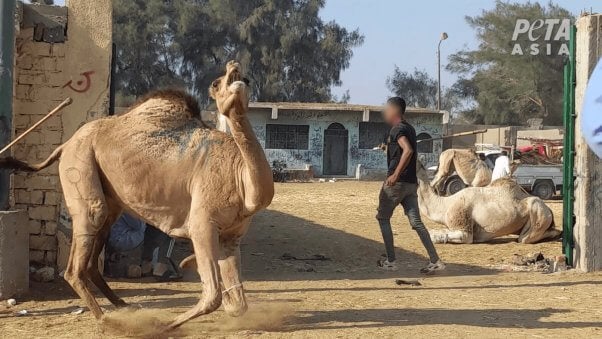
4. Trainers May Starve Camels
Love Is Blind has been accused of not feeding the cast. But camels are often starved and confined as part of “training.” As part of breaking their spirits, trainers may strap camels to a tree or another object where they can’t see anyone. They don’t give them any food during this time.
5. Camels Are Painfully Dragged Along
Can you imagine someone dragging you around with a long stick or rope jammed into your nose? Trainers put ropes and sticks through camels’ sensitive noses to lead them around for tourist rides, forcing them to comply through pain. They also tie their lower jaws to control the animals’ movements, which can cause serious health problems.
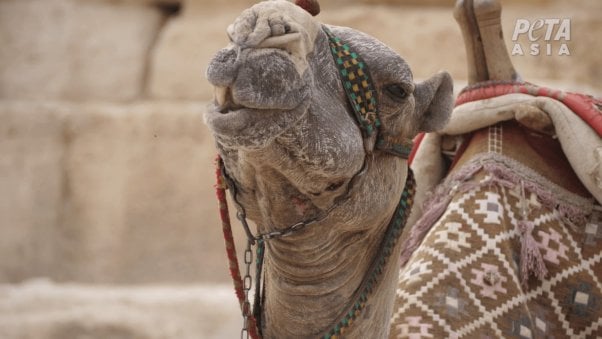
6. Handlers Tie Camels’ Legs and Beat Them With Sticks
Hobbling camels is also part of cruel training. A PETA Asia investigation into the Birqash Camel Market in Egypt revealed that camels are often tied up tightly to prevent them from moving or escaping. Some are even tied to vehicles and dragged through the dirt. In a BBC video showcasing camel training methods, a camel is struck with a stick to get them to accept a rider. And PETA Asia’s research into camel rides found that camels endure severe abuse, including being beaten in sensitive areas, resulting in bloody wounds without receiving any veterinary care.
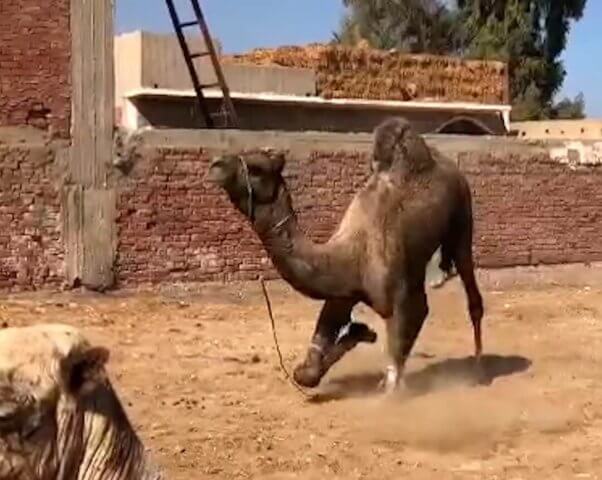
7. Camels Are Killed When No Longer Profitable
While the Love Is Blind stars may look forward to one day retiring in a relaxing atmosphere, there’s no retirement for camels exploited for tourism. When their bodies are worn out and they’re no longer profitable, camels are often killed for meat. In slaughterhouses, they may be killed with axes or metal bars. Footage shows bloody camels groaning while they’re repeatedly hit in the face and on the neck.
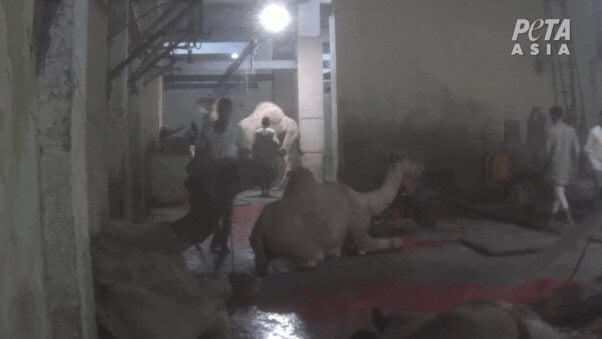
Another Love Is Blind contestant, Stephen, said riding a camel was at the top of his bucket list. Don’t be a Stephen. Never pay for camel rides or photos with animals, and speak out if someone asks you to participate in any activity that uses animals. Don’t turn a blind eye to suffering.
Help camels right now by urging Egypt’s minister of tourism and antiquities to ban camel rides and other animal tourism.

